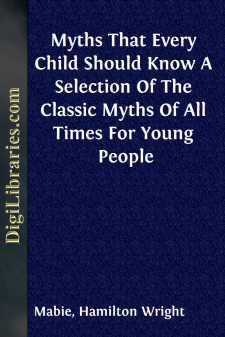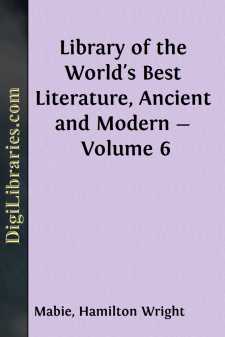Categories
- Antiques & Collectibles 13
- Architecture 36
- Art 48
- Bibles 22
- Biography & Autobiography 816
- Body, Mind & Spirit 145
- Business & Economics 28
- Children's Books 17
- Children's Fiction 14
- Computers 4
- Cooking 94
- Crafts & Hobbies 4
- Drama 346
- Education 58
- Family & Relationships 59
- Fiction 11834
- Foreign Language Study 3
- Games 19
- Gardening 17
- Health & Fitness 34
- History 1378
- House & Home 1
- Humor 147
- Juvenile Fiction 1873
- Juvenile Nonfiction 202
- Language Arts & Disciplines 89
- Law 16
- Literary Collections 686
- Literary Criticism 179
- Mathematics 13
- Medical 41
- Music 40
- Nature 179
- Non-Classifiable 1768
- Performing Arts 7
- Periodicals 1453
- Philosophy 66
- Photography 2
- Poetry 897
- Political Science 203
- Psychology 45
- Reference 154
- Religion 516
- Science 126
- Self-Help 85
- Social Science 82
- Sports & Recreation 34
- Study Aids 3
- Technology & Engineering 59
- Transportation 23
- Travel 463
- True Crime 29
Our website is made possible by displaying online advertisements to our visitors.
Please consider supporting us by disabling your ad blocker.
Library of the World's Best Literature, Ancient and Modern - Volume 1
Categories:
Description:
Excerpt
ABÉLARD
BY THOMAS DAVIDSON
ierre, the eldest son of Bérenger and Lucie (Abélard?) was born at Palais, near Nantes and the frontier of Brittany, in 1079. His knightly father, having in his youth been a student, was anxious to give his family, and especially his favorite Pierre, a liberal education. The boy was accordingly sent to school, under a teacher who at that time was making his mark in the world,--Roscellin, the reputed father of Nominalism. As the whole import and tragedy of his life may be traced back to this man's teaching, and the relation which it bore to the thought of the time, we must pause to consider these.
In the early centuries of our era, the two fundamental articles of the Gentile-Christian creed, the Trinity and the Incarnation, neither of them Jewish, were formulated in terms of Platonic philosophy, of which the distinctive tenet is, that the real and eternal is the universal, not the individual. On this assumption it was possible to say that the same real substance could exist in three, or indeed in any number of persons. In the case of God, the dogma-builders were careful to say, essence is one with existence, and therefore in Him the individuals are as real as the universal. Platonism, having lent the formula for the Trinity, became the favorite philosophy of many of the Church fathers, and so introduced into Christian thought and life the Platonic dualism, that sharp distinction between the temporal and the eternal which belittles the practical life and glorifies the contemplative.
This distinction, as aggravated by Neo-Platonism, further affected Eastern Christianity in the sixth century, and Western Christianity in the ninth, chiefly through the writings of (the pseudo-) Dionysius Areopagita, and gave rise to Christian mysticism. It was then erected into a rule of conduct through the efforts of Pope Gregory VII., who strove to subject practical and civil life entirely to the control of ecclesiastics and monks, standing for contemplative, supernatural life. The latter included all purely mental work, which more and more tended to concentrate itself upon religion and confine itself to the clergy. In this way it came to be considered an utter disgrace for any man engaged in mental work to take any part in the institutions of civil life, and particularly to marry. He might indeed enter into illicit relations, and rear a family of "nephews" and "nieces," without losing prestige; but to marry was to commit suicide. Such was the condition of things in the days of Abélard.
But while Platonism, with its real universals, was celebrating its ascetic, unearthly triumphs in the West, Aristotelianism, which maintains that the individual is the real, was making its way in the East. Banished as heresy beyond the limits of the Catholic Church, in the fifth and sixth centuries, in the persons of Nestorius and others, it took refuge in Syria, where it flourished for many years in the schools of Edessa and Nisibis, the foremost of the time. From these it found its way among the Arabs, and even to the illiterate Muhammad, who gave it (1) theoretic theological expression in the cxii. surah of the Koran: "He is One God, God the Eternal; He neither begets nor is begotten; and to Him there is no peer," in which both the fundamental dogmas of Christianity are denied, and that too on the ground of revelation; (2) practical expression, by forbidding asceticism and monasticism, and encouraging a robust, though somewhat coarse, natural life. Islam, indeed, was an attempt to rehabilitate the human.
In Abélard's time Arab Aristotelianism, with its consequences for thought and life, was filtering into Europe and forcing Christian thinkers to defend the bases of their faith. Since these, so far as defensible at all, depended upon the Platonic doctrine of universals, and this could be maintained only by dialectic, this science became extremely popular,--indeed, almost the rage. Little of the real Aristotle was at that time known in the West; but in Porphyry's Introduction to Aristotle's Logic was a famous passage, in which all the difficulties with regard to universals were stated without being solved. Over this the intellectual battles of the first age of Scholasticism were fought. The more clerical and mystic thinkers, like Anselm and Bernard, of course sided with Plato; but the more worldly, robust thinkers inclined to accept Aristotle, not seeing that his doctrine is fatal to the Trinity.
Prominent among these was a Breton, Roscellin, the early instructor of Abélard. From him the brilliant, fearless boy learnt two terrible lessons: (1) that universals, instead of being real substances, external and superior to individual things, are mere names (hence Nominalism) for common qualities of things as recognized by the human mind; (2) that since universals are the tools and criteria of thought, the human mind, in which alone these exist, is the judge of all truth,--a lesson which leads directly to pure rationalism, and indeed to the rehabilitation of the human as against the superhuman. No wonder that Roscellin came into conflict with the church authorities, and had to flee to England. Abélard afterwards modified his nominalism and behaved somewhat unhandsomely to him, but never escaped from the influence of his teaching. Abélard was a rationalist and an asserter of the human. Accordingly, when, definitely adopting the vocation of the scholar, he went to Paris to study dialectic under the then famous William of Champeaux, a declared Platonist, or realist as the designation then was, he gave his teacher infinite trouble by his subtle objections, and not seldom got the better of him.
These victories, which made him disliked both by his teacher and his fellow-pupils, went to increase his natural self-appreciation, and induced him, though a mere youth, to leave William and set up a rival school at Mélun. Here his splendid personality, his confidence, and his brilliant powers of reasoning and statement, drew to him a large number of admiring pupils, so that he was soon induced to move his school to Corbeil, near Paris, where his impetuous dialectic found a wider field. Here he worked so hard that he fell ill, and was compelled to return home to his family. With them he remained for several years, devoting himself to study,--not only of dialectic, but plainly also of theology. Returning to Paris, he went to study rhetoric under his old enemy, William of Champeaux, who had meanwhile, to increase his prestige, taken holy orders, and had been made bishop of Châlons. The old feud was renewed, and Abélard, being now better armed than before, compelled his master openly to withdraw from his extreme realistic position with regard to universals, and assume one more nearly approaching that of Aristotle.
This victory greatly diminished the fame of William, and increased that of Abélard; so that when the former left his chair and appointed a successor, the latter gave way to Abélard and became his pupil (1113). This was too much for William, who removed his successor, and so forced Abélard to retire again to Mélun. Here he remained but a short time; for, William having on account of unpopularity removed his school from Paris Abélard returned thither and opened a school outside the city, on Mont Ste. Généviève. William, hearing this, returned to Paris and tried to put him down, but in vain. Abélard was completely victorious.
After a time he returned once more to Palais, to see his mother, who was about to enter the cloister, as his father had done some time before. When this visit was over, instead of returning to Paris to lecture on dialectic, he went to Laon to study theology under the then famous Anselm. Here, convinced of the showy superficiality of Anselm, he once more got into difficulty, by undertaking to expound a chapter of Ezekiel without having studied it under any teacher. Though at first derided by his fellow-students, he succeeded so well as to draw a crowd of them to hear him, and so excited the envy of Anselm that the latter forbade him to teach in Laon. Abélard accordingly returned once more to Paris, convinced that he was fit to shine as a lecturer, not only on dialectic, but also on theology. And his audiences thought so also; for his lectures on Ezekiel were very popular and drew crowds. He was now at the height of his fame (1118).
The result of all these triumphs over dialecticians and theologians was unfortunate. He not only felt himself the intellectual superior of any living man, which he probably was, but he also began to look down upon the current thought of his time as obsolete and unworthy, and to set at naught even current opinion. He was now on the verge of forty, and his life had so far been one of spotless purity; but now, under the influence of vanity, this too gave way. Having no further conquests to make in the intellectual world, he began to consider whether, with his great personal beauty, manly bearing, and confident address, he might not make conquests in the social world, and arrived at the conclusion that no woman could reject him or refuse him her favor.
It was just at this unfortunate juncture that he went to live in the house of a certain Canon Fulbert, of the cathedral, whose brilliant niece, Héloïse, had at the age of seventeen just returned from a convent at Argenteuil, where she had been at school. Fulbert, who was proud of her talents, and glad to get the price of Abélard's board, took the latter into his house and intrusted him with the full care of Héloïse's further education, telling him even to chastise her if necessary. So complete was Fulbert's confidence in Abélard, that no restriction was put upon the companionship of teacher and pupil. The result was that Abélard and Héloïse, both equally inexperienced in matters of the heart, soon conceived for each other an overwhelming passion, comparable only to that of Faust and Gretchen. And the result in both cases was the same. Abélard, as a great scholar, could not think of marriage; and if he had, Héloïse would have refused to ruin his career by marrying him. So it came to pass that when their secret, never very carefully guarded, became no longer a secret, and threatened the safety of Héloïse, the only thing that her lover could do for her was to carry her off secretly to his home in Palais, and place her in charge of his sister. Here she remained until the birth of her child, which received the name of Astralabius, Abélard meanwhile continuing his work in Paris. And here all the nobility of his character comes out. Though Fulbert and his friends were, naturally enough, furious at what they regarded as his utter treachery, and though they tried to murder him, he protected himself, and as soon as Héloïse was fit to travel, hastened to Palais, and insisted upon removing her to Paris and making her his lawful wife. Héloïse used every argument which her fertile mind could suggest to dissuade him from a step which she felt must be his ruin, at the same time expressing her entire willingness to stand in a less honored relation to him. But Abélard was inexorable. Taking her to Paris, he procured the consent of her relatives to the marriage (which they agreed to keep secret), and even their presence at the ceremony, which was performed one morning before daybreak, after the two had spent a night of vigils in the church.
After the marriage, they parted and for some time saw little of each other. When Héloïse's relatives divulged the secret, and she was taxed with being Abélard's lawful wife, she "anathematized and swore that it was absolutely false." As the facts were too patent, however, Abélard removed her from Paris, and placed her in the convent at Argenteuil, where she had been educated. Here she assumed the garb of a novice. Her relatives, thinking that he must have done this in order to rid himself of her, furiously vowed vengeance, which they took in the meanest and most brutal form of personal violence. It was not a time of fine sensibilities, justice, or mercy; but even the public of those days was horrified, and gave expression to its horror. Abélard, overwhelmed with shame, despair, and remorse, could now think of nothing better than to abandon the world. Without any vocation, as he well knew, he assumed the monkish habit and retired to the monastery of St. Denis, while Héloïse, by his order, took the veil at Argenteuil. Her devotion and heroism on this occasion Abélard has described in touching terms. Thus supernaturalism had done its worst for these two strong, impetuous human souls.
If Abélard had entered the cloister in the hope of finding peace, he soon discovered his mistake. The dissolute life of the monks utterly disgusted him, while the clergy stormed him with petitions to continue his lectures. Yielding to these, he was soon again surrounded by crowds of students--so great that the monks at St. Denis were glad to get rid of him. He accordingly retired to a lonely cell, to which he was followed by more admirers than could find shelter or food. As the schools of Paris were thereby emptied, his rivals did everything in their power to put a stop to his teaching, declaring that as a monk he ought not to teach profane science, nor as a layman in theology sacred science. In order to legitimatize his claim to teach the latter, he now wrote a theological treatise, regarding which he says:--
"It so happened that I first endeavored to illuminate the basis of our faith by similitudes drawn from human reason, and to compose for our students a treatise on 'The Divine Unity and Trinity,' because they kept asking for human and philosophic reasons, and demanding rather what could be understood than what could be said, declaring that the mere utterance of words was useless unless followed by understanding; that nothing could be believed that was not first understood, and that it was ridiculous for any one to preach what neither he nor those he taught could comprehend, God himself calling such people blind leaders of the blind."Here we have Abélard's central position, exactly the opposite to that of his realist contemporary, Anselm of Canterbury, whose principle was "Credo ut intelligam" (I believe, that I may understand). We must not suppose, however, that Abélard, with his rationalism, dreamed of undermining Christian dogma. Very far from it! He believed it to be rational, and thought he could prove it so. No wonder that the book gave offense, in an age when faith and ecstasy were placed above reason. Indeed, his rivals could have wished for nothing better than this book, which gave them a weapon to use against him. Led on by two old enemies, Alberich and Lotulf, they caused an ecclesiastical council to be called at Soissons, to pass judgment upon the book (1121). This judgment was a foregone conclusion, the trial being the merest farce, in which the pursuers were the judges, the Papal legate allowing his better reason to be overruled by their passion. Abélard was condemned to burn his book in public, and to read the Athanasian Creed as his confession of faith (which he did in tears), and then to be confined permanently in the monastery of St. Médard as a dangerous heretic.
His enemies seemed to have triumphed and to have silenced him forever. Soon after, however, the Papal legate, ashamed of the part he had taken in the transaction, restored him to liberty and allowed him to return to his own monastery at St. Denis. Here once more his rationalistic, critical spirit brought him into trouble with the bigoted, licentious monks. Having maintained, on the authority of Beda, that Dionysius, the patron saint of the monastery, was bishop of Corinth and not of Athens, he raised such a storm that he was forced to flee, and took refuge on a neighboring estate, whose proprietor, Count Thibauld, was friendly to him. Here he was cordially received by the monks of Troyes, and allowed to occupy a retreat belonging to them.
After some time, and with great difficulty, he obtained leave from the abbot of St. Denis to live where he chose, on condition of not joining any other order. Being now practically a free man, he retired to a lonely spot near Nogent-sur-Seine, on the banks of the Ardusson. There, having received a gift of a piece of land, he established himself along with a friendly cleric, building a small oratory of clay and reeds to the Holy Trinity. No sooner, however, was his place of retreat known than he was followed into the wilderness by hosts of students of all ranks, who lived in tents, slept on the ground, and underwent every kind of hardship, in order to listen to him (1123). These supplied his wants, and built a chapel, which he dedicated to the "Paraclete,"--a name at which his enemies, furious over his success, were greatly scandalized, but which ever after designated the whole establishment.
So incessant and unrelenting were the persecutions he suffered from those enemies, and so deep his indignation at their baseness, that for some time he seriously thought of escaping beyond the bounds of Christendom, and seeking refuge among the Muslim. But just then (1125) he was offered an important position, the abbotship of the monastery of St. Gildas-de-Rhuys, in Lower Brittany, on the lonely, inhospitable shore of the Atlantic. Eager for rest and a position promising influence, Abélard accepted the offer and left the Paraclete, not knowing what he was doing.
His position at St. Gildas was little less than slow martyrdom. The country was wild, the inhabitants were half barbarous, speaking a language unintelligible to him; the monks were violent, unruly, and dissolute, openly living with concubines; the lands of the monastery were subjected to intolerable burdens by the neighboring lord, leaving the monks in poverty and discontent. Instead of finding a home of God-fearing men, eager for enlightenment, he found a nest of greed and corruption. His attempts to introduce discipline, or even decency, among his "sons," only stirred up rebellion and placed his life in danger. Many times he was menaced with the sword, many times with poison. In spite of all that, he clung to his office, and labored to do his duty. Meanwhile the jealous abbot of St. Denis succeeded in establishing a claim to the lands of the convent at Argenteuil,--of which Héloïse, long since famous not only for learning but also for saintliness, was now the head,--and she and her nuns were violently evicted and cast on the world. Hearing of this with indignation, Abélard at once offered the homeless sisters the deserted Paraclete and all its belongings. The offer was thankfully accepted, and Héloïse with her family removed there to spend the remainder of her life. It does not appear that Abélard and Héloïse ever saw each other at this time, although he used every means in his power to provide for her safety and comfort. This was in 1129. Two years later the Paraclete was confirmed to Héloïse by a Papal bull. It remained a convent, and a famous one, for over six hundred years.
After this Abélard paid several visits to the convent, which he justly regarded as his foundation, in order to arrange a rule of life for its inmates, and to encourage them in their vocation. Although on these occasions he saw nothing of Héloïse, he did not escape the malignant suspicions of the world, nor of his own flock, which now became more unruly than ever,--so much so that he was compelled to live outside the monastery. Excommunication was tried in vain, and even the efforts of a Papal legate failed to restore order. For Abélard there was nothing but "fear wi












